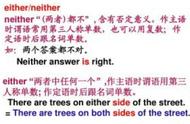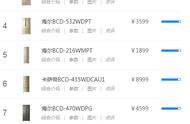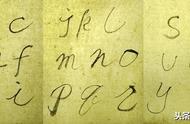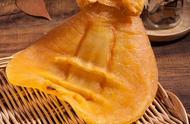非谓语的三种形式(to do, doing, done)中,to do 表目的和动作将要发生,有6种成分;doing 表主动和动作正在进行,有7种成分;done 表被动和动作已发生,有4种成分。

一、作表语
The city is surrounded on three sides by mountains. 这座城市三面环山.
Note:过去分词作表语与被动语态的区别:过去分词作表语,主要是表示主语的状态,而被动语态则表示动作.
(1) The cup was broken by my little sister yesterday. 茶杯是昨天我小妹打碎的.(是被动语态,表示动作)
(2) The library is now closed. 图书馆关门了.(过去分词作表语)
彩蛋:作表语用的过去分词在许多词典中已列为形容词,如:crowded, devoted, discouraged, done, dressed, drunk, experienced, frightened, gone, hurt, interested, killed, known, learned, lost, pleased, satisfied, shut, surprised, tired, undressed, worried, astonished, broken, completed, covered等。
二、作定语
作定语用的过去分词相当于形容词,其逻辑主语就是它所修饰的名词,表被动和表完成。
1. 过去分词用作定语,如果是单个的,常置于其所修饰的名词之前.
We must adapt our thinking to the changed conditions. 我们必须使我们的思想适应改变了的情况.
2.过去分词短语用作定语时,一般置于其修饰的名词之后,其意义相当于一个定语从句,但较从句简洁,多用于书面语中.
The concert given by their friends was a success.他们朋友举行的音乐会大为成功.
3.过去分词短语有时也可用作非限制性定语,前后常有逗号.
The meeting, attended by over five thousand people, welcomed the great hero. 他们举行了欢迎英雄的大会,到会的有五千多人.
三、作状语 (考点)
1.done(过去分词作)状语:表示被动和完成的动作.
(1) Written in a hurry, this article was not so good! 因为写得匆忙,这篇文章不是很好.
Note: written 为过去分词作状语,其逻辑主语是主句的主语this article,是被动关系。
(2) Lost / Absorbed in deep thought, he didn't hear the sound.因为沉溺于思考之中,所以他没听到那个声音.
Note: 英语中有些词,如 lost (迷路); seated (坐); hidden (躲); stationed (驻扎); lost / absorbed in (沉溺于); born (出身于); dressed in (穿着); tired of (厌烦). 虽然是done 的形式,但是不是表被动,而是表人的某种状态。(必须记住)
2.独立结构:如果过去分词作状语时,前面再加逻辑主语,主句的主语就不再是分词的逻辑主语,这种带逻辑主语的过去分词结构实际上属于独立主格结构.
(1) The signal given, the bus started. 信号一发出,汽车就开动了.(the signal 是 given 的逻辑主语,因此主句主语 the bus 就不是given 的逻辑主语.
(2) Her head held high, she went by. 她把头昂得高高地从这儿走了过去.(her head 是 held high 的逻辑主语,因此主句主语 she 就不再是held high 的逻辑主语.)
3. done(过去分词作)状语相当于状语从句. (常考点)
(1) Caught in a heavy rain, he was all wet. 因为淋了一场大雨,所以他全身湿透了.
(caught in a heavy rain 相当于原因状语从句 Because he was caught in a heavy rain.)
(2)_Grown in rich soil, these seeds can grow fast. 如果种在肥沃的土壤里,这些种子能长得很快.( grown in rich soil 相当于条件状语从句 If these seeds are grown in rich soil. )
【注意】状语从句改成过去分词作状语时有时还可保留连词,构成"连词 过去分词"结构作状语.
When given a medical examination, you should keep calm. 当你做体格检查时要保持镇定.
4. done(过去分词作)状语的位置:可放在主句前作句首状语,后面有逗号与主句隔开;也可放在主句后面,前面有逗号与主句隔开.
He stood there silently, moved to tears. = moved to tears, he stood there silently. 他静静地站在那里,被感动得热泪盈眶.
四、当过去分词作为宾语补足语 (考点)
(一)能够接done(过去分词)作宾补的动词有以下四类:
1. 表示感觉或心理状态的动词.如:see, watch, observe, look at, hear, listen to, feel, notice, think等.
(1) I heard the song sung in English. 我听到有人用英语唱过这首歌.
(2)He found his hometown greatly changed. 他发现他的家乡变化很大.
2. 表示"致使"意义的动词.如:have, make, get, keep, leave等. (重点考点)
(1) I'll have my hair cut tomorrow. 明天我要理发.
(2) He got his tooth pulled out yesterday. 他昨天把牙拔了.
(3) Don't leave those things undone. 要把那些事情做完.
3. 表示思维活动的动词如consider, know, think等后。如:
(1) I consider the matter settled. 我认为这件事解决了。
(2) I thought myself wronged somehow in the bargain. 我认为自己在这场交易中有受愚弄了。
4. 表示爱憎、意愿的动词如want, wish, like, hate等后。如:
(1) I wanted two tickets reserved. 我要预定两张机票。
(2) He didn’t wish it mentioned. 他不愿这事被提起。
【注意】过去分词所表示的动作一定和宾语有逻辑上的动宾关系.
练一练吧1.John rushed out in a hurry, ___ the door ____.
A. leaving; unlocked B. leaving; unlocking
C. left; unlocked D. to leave; unlocking
2. Before she came to England ,she had never heard a single English word __ __.
A. speaking B. spoken
C. to speak D. speak
3.You must get the work _ ___ before Friday.
A. do B. to do C. doing D. done
4._ _ the room, the nurse found the tape recorder ___.
A.Entering;stealing
B. Entering; gone
C. To have entered; being stolen
D. Having entered; to be stolen
5.We are pleased to see the problem _ __ so quickly.
A. settled B. having been settled
C. be settled D. settling
6. The ____ professor found the matter __.
A. surprising, surprised B. surprised, surprised
C. surprised, surprising D. surprising, surprising
7.When first _ __ to the market , these products enjoyed great success.
A. introducing B. introduced
C. introduce D. being introduced
8. Laws that punish parents for their little children’s actions against the laws get parents__ _______.
A. worried B. to worry C. worrying D. worry
9. I like reading the novels ______ (write ) by Zhang Ailing.
10. The girl ______ (write) a letter in the study is my cousin.
11.There is something wrong with my car and I have to get it __________ (repair).
12. When _________(start) a conversation, one can never ask such questions as these: How old are you? What’s your salary? Where did you buy your new dress?
13.________(give)more attention, the work would have been done better.
14.I want the doors of my new house ______ (paint) white.
15. There was a ________ (surprise) look on his face.
16. He was ______ (excite) at the good news.
17. The story was so ______ (move) that he was ______ (move) to tears.
18. When _________ (offer) help, one often says “Thank you” or “It’s kind of you”.
19. Did you attend the meeting _____yesterday?
A. to be held B. having been held
C. held D. being held
20.Do you know the name of the play___ in the hall now?
A. to be put on B. being put on
C. put on D. putting on
,












